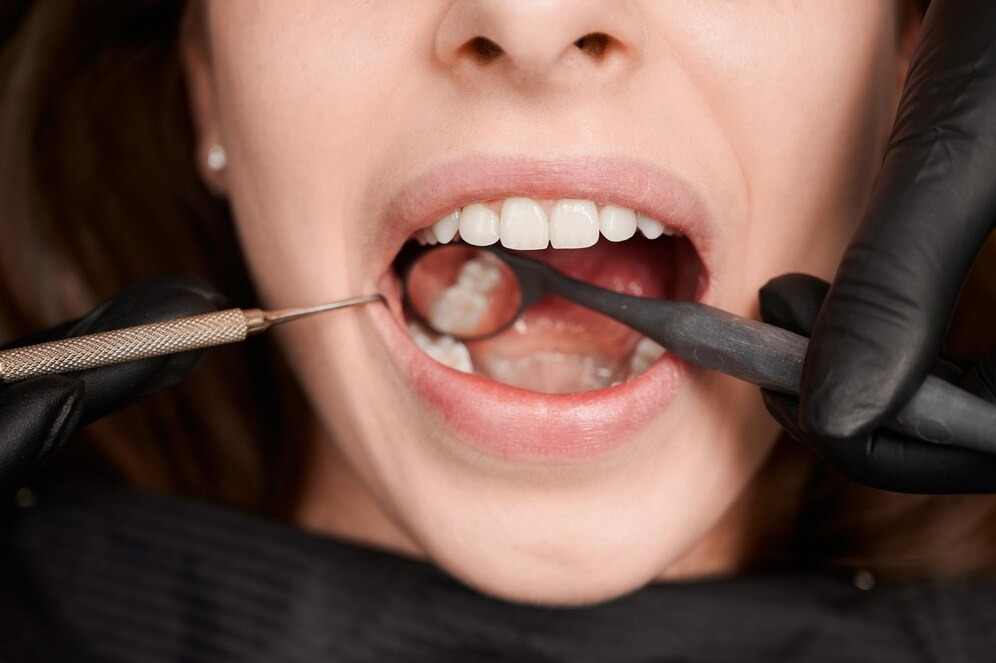- Thirumenahalli, Bangalore
- vsmilefamily@gmail.com
- Call Today (+91) 707 595 2939
- Open Hour 10AM - 8PM

Oral Lesions
Oral lesions are abnormal changes in the tissue of the mouth, which can appear as sores, bumps, or patches. These lesions may vary in size, color, and texture and can be symptomatic of various conditions, ranging from benign to more serious health issues.Common types of oral lesions include
- canker sores
- gapcold sores
- leukoplakia
- oral thrush
The management of oral lesions often depends on their cause. For instance, canker sores may heal on their own and can be treated with topical medications, while cold sores caused by the herpes virus may require antiviral medications. In cases where lesions are persistent or exhibit unusual characteristics, further examination may be necessary to rule out more serious conditions, including oral cancer.
Symptoms may include pain, discomfort, swelling, or difficulty eating and speaking. Identifying the type of oral lesion is crucial, as it helps determine the underlying cause and appropriate treatment options. Regular dental check-ups can help in early detection and treatment of any oral lesions, ensuring better oral health and overall well-being.
How To Take Care During oral lesions Procedures: To care for oral lesions, maintaining good oral hygiene is essential. This includes brushing gently, avoiding irritants like spicy or acidic foods, and using mouth rinses to reduce discomfort. Staying hydrated and avoiding tobacco products can also promote healing. If you notice any persistent or worsening lesions, it’s important to consult your dentist for a thorough evaluation.
When To Visit your Doctor? If you notice an oral lesion that lasts longer than two weeks, changes in color or size, or is accompanied by severe pain or swelling, it is essential to visit your dentist. Prompt evaluation and diagnosis are crucial to rule out any serious conditions and to initiate appropriate treatment.
oral lesions Options: Treatment options for oral lesions vary depending on the type and cause. For mild cases like canker sores, over-the-counter topical treatments may be effective. In cases of infections, antifungal or antiviral medications may be prescribed. If a lesion is suspected to be cancerous, a biopsy may be necessary for further analysis and treatment planning. Your dentist will recommend the most suitable approach based on your specific condition.
© 2025 V Smile Family Dental. Designed by StraDigi Consulting
